ISEE President Elect
Candidacy: Statement
Clóvis Cavalcanti
My approach of ecological
economics began in July 1964, when I heard Nicholas Georgescu-Roegen speaking
at the Getúlio Vargas Foundation (in Rio). I was doing there a graduate program
in economics. Georgescu explained the role of the laws of thermodynamics (and
obviously, entropy) in the economic process. Between January and March 1970, I
was a visiting professor in the Department of Economics at the University of
Vanderbilt, where Georgescu taught. My office was beside his. I saw him daily.
We talked on those occasions. One day, at his invitation, I went to dinner at
his house.
What most impressed me during this period, however, was reading his book Analytical Economics. Issues and Problems (Cambridge,
USA: Harvard University Press, 1967), in whose preface Paul Samuelson,
Georgescu’s colleague at Harvard, classifies him as an “economist's economist.”
Nature was not being taken into account in the work of the conventional
economist. To realize this and read Georgescu-Roegen only whetted my curiosity
about examining the economy from the viewpoint of ecology. It coincided that in
my months of Vanderbilt, I read a very good book by Erich Fromm, The Art of Loving (New York:
HarperCollins Publishers, 1956). The reading led me to think about the content
of the reflection of Fromm, that is, if love is an art, which requires
knowledge and effort, or a pleasant sensation, whose experience is a fluke,
something that falls to fortune help. The book shows that love is an art. To love
nature is thus an art, therefore, imposing the study of nature itself.
In the 1970s and 1980s, as a regular contributor I wrote articles in the Jornal do Brasil newspaper, of Rio, then
the most important in the country. They offered a critical view of economic
theory and development. In one of them I spoke about the Entropy Law in
relation to economic growth. Herman Daly read it. He then wrote to me and sent some
of his works. We stayed in touch ever since (I met Herman for the first time in
March 1970, at Yale, where he was a visiting fellow). In 1983, I organized a
course at the annual meeting of SBPC (the Brazilian Society for the Advancement
of Science) in Belém (state of Pará), called, for lack of a better title, ‘The
Economics of the 80s”. To teach it with me, I invited as lecturers, Herman, and
two dissident economists: my former student Cristovam Buarque (a Brazilian
senator at present, and former minister of education and rector of the
University of Brasília) and Dirceu Pessoa (1937-1987), with whom I wrote a book
in the 1960s. It was a success, attended by about 50 students, including Amélia
Rodrigues Enríquez, who then studied economics and later turned into an ecological
economist, even becoming president of the Brazilian Society for Ecological
Economics (ECOECO) in 2010-2013.
In May 1990, invited by the organizers, I participated as a speaker in the
First Meeting of the International Society for Ecological Economics (ISEE) in
Washington, DC (USA). Following the Washington meeting, a workshop took place
at Wye Island (Maryland), bringing together around 25 people (Kenneth Boulding,
Herman Daly, Joan Martínez Alier, Richard Norgaard, John Proops, Garrett
Hardin, Bob Costanza, Enzo Tiezzi, Silvio Funtowicz, among them). I was honored
to attend the seminar, which resulted in the book by Costanza and Joyce
Bartholomew (eds.) Ecological Economics:
the Science and Management of Sustainability, of which I am a co-author. In
the 90s, I collaborated in the establishment of ECOECO and ANPPAS (Brazil’s
National Association for Research and Graduate Studies on the Environment and
Society). I organized two seminars that were basic in this process. The first
one, in August 1994, at Engenho Massangana (state of Pernambuco), entitled “The
Economics of Sustainability”. It was attended by Peter May, Darrell Posey
(1947-2001), Frank Jöst (from Reiner Manstetten’s group), Steve Viederman,
Ronaldo Serôa da Motta, Eduardo Viola, Paulo Freire Vieira (a student of Ignacy
Sachs), and other people. The other meeting occurred in Olinda (Pernambuco) in April
1996, with Daly, Martínez Alier, Norgaard, Cutler Cleveland, Robert Goodland,
Salah El Serafy, Peter May, Posey, Karl-Erik Eriksson and more people. Two books,
which I edited, resulted from these events. The second one was translated into
English: The Environment, Sustainable
Development and Public Policy: Building Sustainability in Brazil
(Cheltenham: Elgar, 1997).
I attended all the biennial meetings of ISEE, except those of Montreal (2004)
and Nairobi (2008). Of all ECOECO congresses, I missed the third one, of Belém (Pará)
in 1997. As to ANPPAS’s conferences, I attended all of them. Also I got
involved in the Ibero-American Network of Ecological Economics (Redibec). My
desire has always been to challenge the conventional economics I learned at the
university, with teachers that include the Nobel laureate James Tobin at Yale.
In this, I follow what Georgescu indicates. I understand that Ecological Economics
is the ecological view of the economy; it is therefore not a branch of
economics. Economics means the economic view of the economy. And environmental
economics is the economic vision of the environment. By the way, the first
course of environmental economics in Brazil was given by me in the second half
of 1975 at the undergraduate level in the Faculty of Economics of the Federal
University of Pernambuco, as an elective discipline. At that time I was in the
transition from being an economist to becoming an ecological economist.
What I would like to do as
President-Elect of ISEE is to contribute in the best possible way for ISEE to
effectively represent a force to introduce a new way of seeing the world within
the scientific field with respect to the relations between the economy and
nature. My perspective is exactly the same of Herman Daly, Joan Martínez Alier,
Nicholas Georgescu-Roegen. I think we should promote a science committed to
human well-being, to the pursuit of happiness – the enjoyment of life, in
Georgescu’s words. ISEE has everything to fulfill that role, in line with what Daly proposes with respect to
the steady-state economy; in line also with Pope Francis’s recent encyclical Laudato Si’. And the forty-year experience
of Bhutan’s Gross National Happiness philosophy.
--------
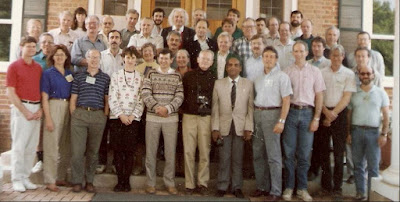 |
| ISEE, EUA 1990 |
-------
ISSEE - Russia
Statement at the opening of
the Meeting of the
Russian Society for Ecological Economics
RSEE-2017,
Petrozavodsk, July 4, 2017
Clóvis Cavalcanti
It is a great honor to greet you as
International Program Committee Co-chairman of the RSEE-2017 and ISEE President-Elect.
Having participated at RSEE-2013 in
Irkutsk, I developed a great appreciation for you, my dear fellow Colleagues
from this big and admirable country. I owe this to a great extent, I have to
say, to my friendship with Paul Safonov, a good representative of ecological
economics thinking. He treated me with much attention and affection in Siberia.
Unfortunately, I could not get the
necessary support to travel to Petrozavodsk, a place that I would very much
like to visit. I am sure that during the conference you will do your best to
promote this field of work that was created in the 1980s. RSEE-2017 is a
precious opportunity to achieve progress in this process. We need to
demonstrate that ecological economics is a path to a saner, sustainable world.
I consider the invitation for me to
co-chair RSEE-2017’s International Program Committee, first of all, as a sign
of affection. And affection, dear Colleagues and Friends, seems to me the great
strength, the cement of ecological economics (and of an ecological economy):
affection for our fellow human beings, affection for the beauty of Nature, love
for life. This is why we challenge so strongly the prevailing concept of
development which puts continuous economic growth – a biophysical impossibility
in the first place – before anything else. The inspiring contribution of
Nicholas Georgescu-Roegen has shown conclusively that to speak of infinite
growth in a finite planet, to use his expression, is “a graceless tautology”.
Of course, we want development. But growth is another thing – a beast that its
worshippers want to camouflage with a green dye. Disgracefully, people from the “brown economy” are very
powerful. It is they who finance – and corrupt – governments, who get votes,
who manage political parties, so it is not easy and wise to ignore them.
I am fully convinced that growth is
a myth. Our affection for humanity should lead us to think on improving the
human condition. This is the task I conceive for ecological economics. We need
sustainable development or prosperity. We do not want to see our world
collapsing. We love life. We want to preserve nature for our descendants. In a
lecture that Wendell Berry, an admirable American poet, gave in 2012 he said
that “it is in affection that we find the possibility of a neighborly, kind,
and conserving economy”. The concept of sustainability, according to Berry, requires
that “the fertility cycle of birth, growth, maturity, death, and decay … should
turn continuously in place … so that nothing is wasted”. Berry explains that “For this to happen in
the stewardship of humans, there must be a cultural cycle in harmony with the
fertility cycle”. Berry concludes: “The fertility cycle turns by the law of
nature. The cultural cycle turns on affection”.
I wish RSEE-2017 assumes the profile
of a humane enterprise turning on affection. And let us not forget that, above
and below the earth, everything rusts, decays, becomes waste.
Have a good conference!
Обращение к открытию конференции
Российского общества экологической экономики РОЭЭ-2017,
Петрозаводск, 4 июля 2017 года
Кловис Кавальканти
Это большая честь для меня приветствовать Вас в качестве Cо-председателя Международного программного комитета
конференции РОЭЭ-2017 и Президента-Элект Международного общества экологической
экономики (ISEE). За время моего участия в конференции РОЭЭ-2013
в Иркутске, у меня сложилось очень благоприятное отношение к вам, мои дорогие
коллеги из этой большой и восхитительной страны. Должен сказать, что этому я во
многом обязан моей дружбе с Павлом Сафоновым. Он и его коллеги приняли меня в Сибири
с большим вниманием и уважением. К сожалению, я не смог найти необходимые
средства для поездки в Петрозаводск, место, которое я бы очень хотел посетить.
Я уверен, что за время конференции вы сделаете все что в ваших силах для продвижения
экологической экономики, направления, которое было создано в 80х годах прошлого
столетия. РОЭЭ-2017 – это ценная возможность добиться прогресса в этом
процессе. Нам нужно продемонстрировать, что экологическая экономика - это путь
к более здравому, действительно устойчивому миру.
Я считаю приглашение меня Со-председателем Международного программного комитета
РОЭЭ-2017, прежде всего, знаком признательности. Признательность и любовь, дорогие
коллеги и друзья, мне кажется великой силой, цементом экологической экономики:
привязанностью к нашим ближним, привязанностью к красоте Природы, любовью к
жизни. Вот почему мы так сильно оспариваем преобладающую концепцию развития,
которая ставит превыше всего непрерывный экономический рост (который, в нашем
понимании, просто биофизически невозможен). Вдохновенный вклад Николаса
Жоржеску-Рогена убедительно показал, что говорить о бесконечном росте на
конечной планете, используя его выражение, является «безграмотной тавтологией».
Конечно же мы хотим развития. Но рост – это другое дело, это зверь, поклонники
которого хотят замаскировать его зеленой краской. К всеобщему стыду, в реальной жизни люди из так называемой «коричневой
экономики» очень сильны. Именно они финансируют (и коррумпируют) правительства,
получают на выборах голоса, управляют политическими партиями. И поэтому нелегко
и немудро игнорировать их.
Я полностью убежден, что рост – это миф. Наша привязанность к человечеству
должна побуждать нас думать об улучшении состояния человека. Это та задача,
которая мне представляется основной для экологической экономики. Нам необходимо
устойчивое развитие или процветание. Мы не хотим, чтобы наш мир рушился. Мы
любим жизнь. Мы хотим сохранить природу для наших потомков. В лекции, которую
Венделл Берри, замечательный американский поэт, прочитал в 2012 году, он
сказал, что «именно в любви мы находим возможность для создания добрососедской
и бережливой экономики». По мнению Берри, концепция устойчивости требует, чтобы
«цикл рождаемости, роста, зрелости, смерти и распада ... должен постоянно
функционировать ... так, чтобы ничего не пропало даром». Берри объясняет, что «для
того, чтобы это происходило при управлении людьми, должен существовать
культурный цикл в гармонии с циклом плодородия». Берри заключает: «Цикл
фертильности превращается в закон природы. Культурный цикл включает любовь».
Я бы хотел, чтобы и конференция РОЭЭ-2017 базировалась на гуманных
принципах, основанных на признательности и любви. И давайте не будем забывать,
что всё над и под землей ржавеет, распадается, превращается в отходы...
Желаю вам успешного проведения конференции!
Here is a video of my opening presentation, which includes your video-greeting:
I introduce your presentation after 17:35:
and it starts exactly at 20:10


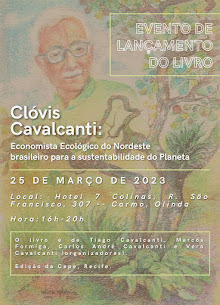


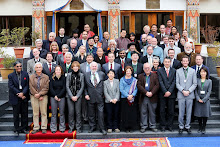
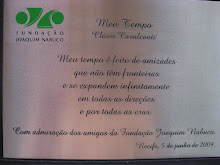

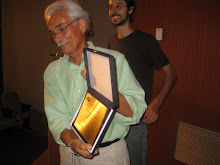
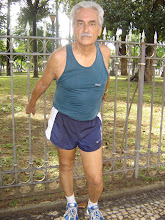


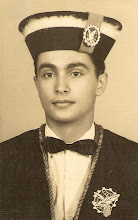
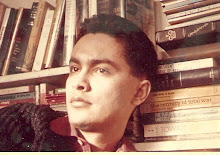


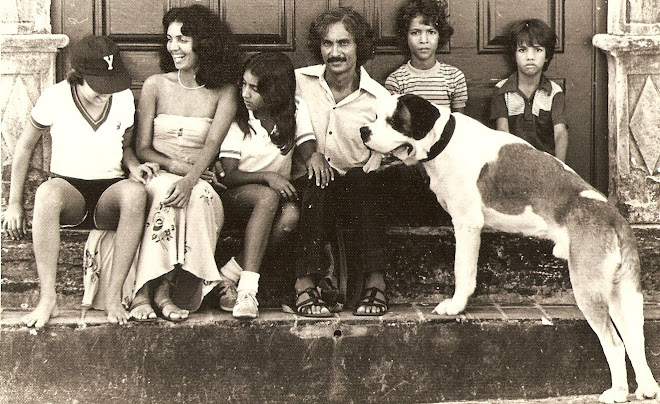
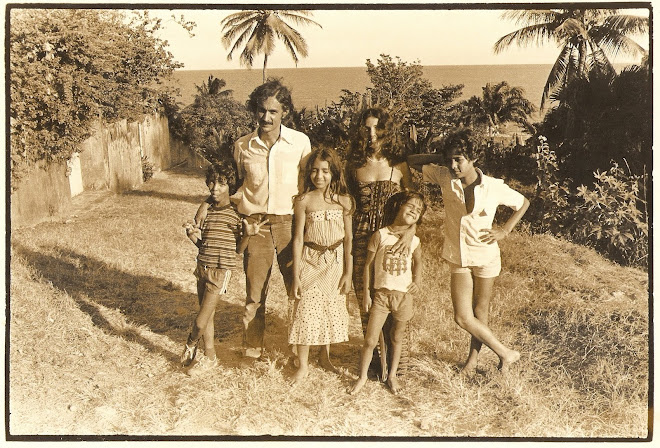

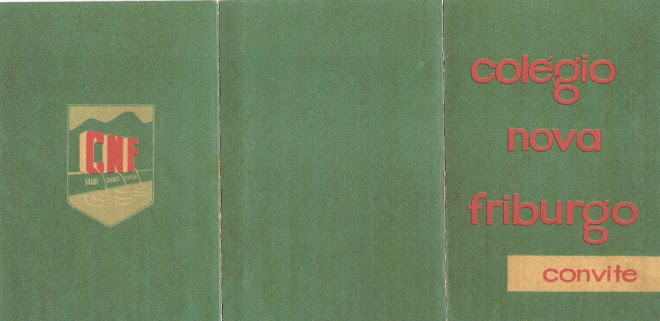
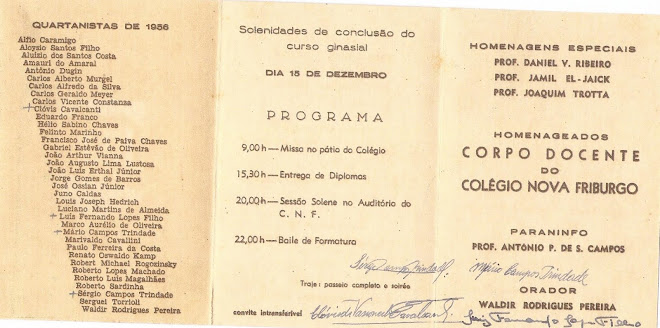
Nenhum comentário:
Postar um comentário